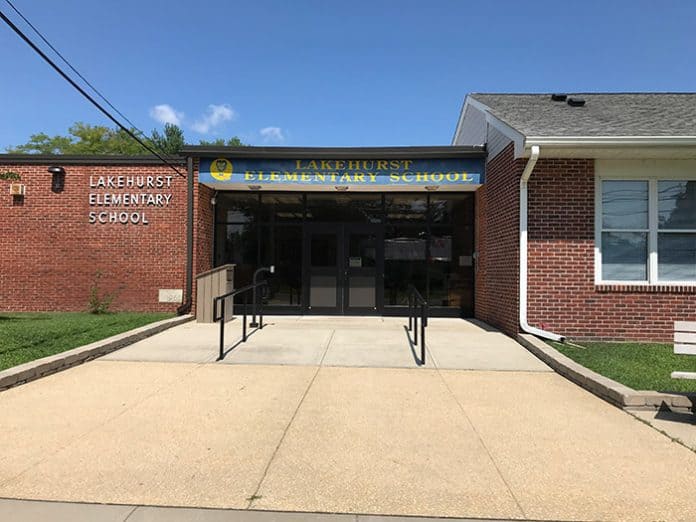
LAKEHURST – The Lakehurst Borough School District will borrow money from the state to pay its mold remediation bill. But officials said taxpayers will not feel the sting from that.
The money the district will be borrowing to pay its mold remediation costs will likely be paid back over an 8- to 10-year period, “and will be no additional annoyance to the taxpayers. That’s the primary thing on everybody’s mind, is not to hurt the taxpayer,” School Business Administrator Barry Parliman said. He explained that the district is making its final payments for the HVAC renovations that were approved 5 years ago. When this is paid off, the district will start paying back the state, thereby keeping the debt service about the same.
The district will borrow around $800,000 from the state, and hope to pay that back at about $80,000 a year plus interest for 10 years, officials said.
Several area school districts reported mold problems over the summer, due to the hot, wet weather, and in Lakehurst’s case, a malfunction in and poor installation of its relatively new HVAC system. Lakehurst Elementary School was the hardest hit in Ocean County. The building had to be shut down and completely remediated, a clean-up project that took 4 months and nearly $1 million to complete. Classes were held at St. John’s Roman Catholic Church in the borough and three schools – Whiting, Ridgeway elementary schools and Manchester Middle School – in Manchester. Students and staff were able to return to Lakehurst Elementary Jan. 7.
The district didn’t have enough cash on hand to pay that bill. They reached out to the borough council to bond. Borough officials recently said that was illegal, but school officials under the advice of their bond advisors said it was “perfectly legal,” Parliman said. “The town preferred not to do it. …There were extenuating circumstances that the town didn’t want to do it.”
The district didn’t want to secure the money through the state, but were hoping to go to bond through the borough because it’s quicker and easier, Parliman added. However, he said, because of the possible financial stress it would put on the borough, the school district ultimately didn’t go beyond its initial meeting with borough officials.
One resident asked if the district will pursue legal action against anyone involved in installing the HVAC system. The board attorney Steven Zabarsky said they could not comment on any potential litigation.
Superintendent Loren Fuhring said the district has been in talks with the state since August, when the mold was first discovered. She said the district didn’t know when the loan would be finalized – they are dealing with the state after all, she quipped – but that residents shouldn’t fear the loan won’t materialize.






